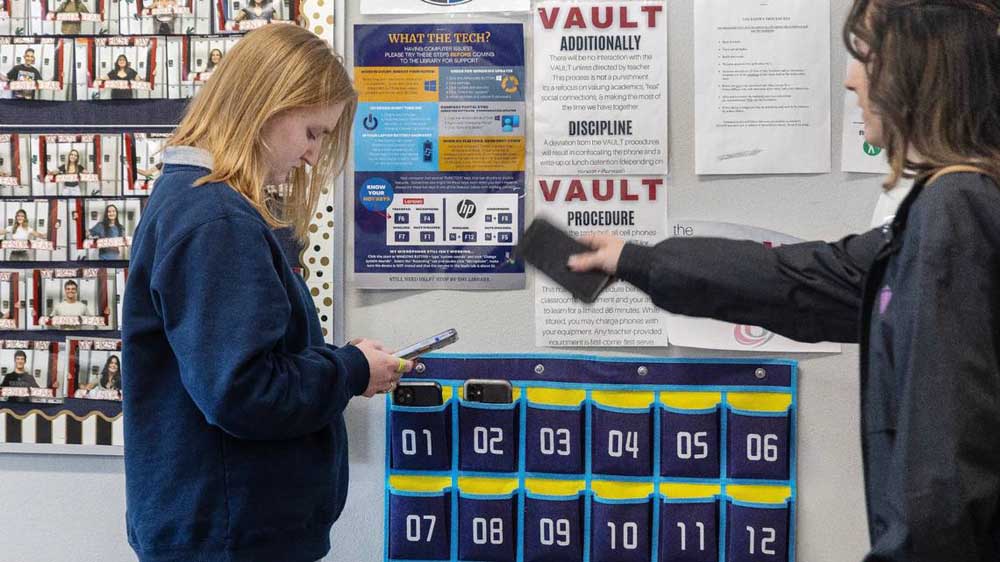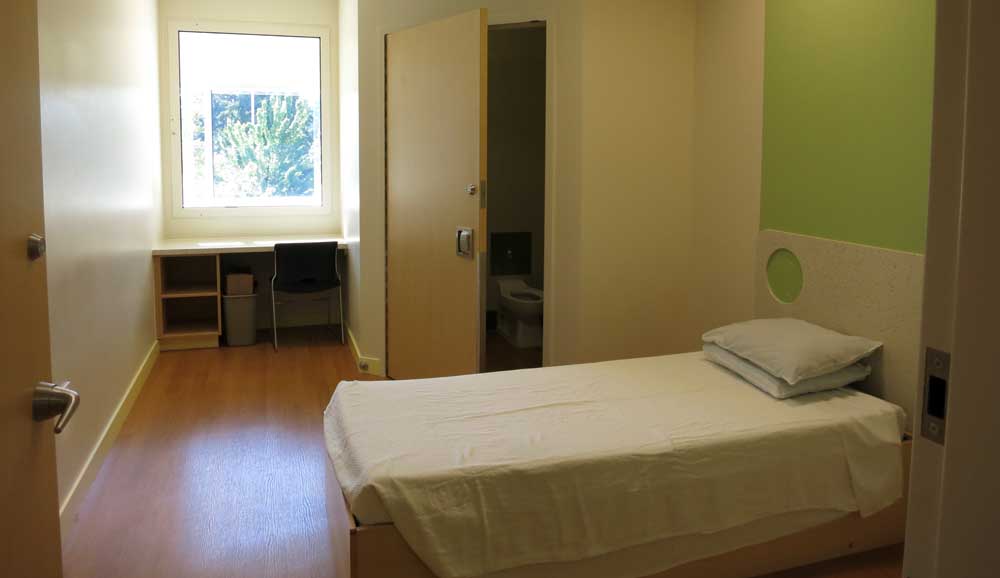Powered off and put away: Bend schools limit cell phones in classrooms
Published 5:45 am Wednesday, July 17, 2024

- Junior Chloe Bowman, 17, checks her phone one last time before storing it at the start of class at Owyhee High School in Meridian, Idaho, just west of Boise. Concern about the use of cellphones in schools has become widespread.
Central Oregon educators and parents are trying to balance students’ use of personal devices such as cellphones and smart watches in an increasingly digital world with the need to keep classrooms free of distractions — including those devices.
Across the country, cellphone use in schools has become an issue so pervasive it’s been taken up by school administrators, lawmakers and even the Oregon attorney general. Phones are thought to be distracting for students and to affect the learning environment.
Trending
In Central Oregon, local advocacy group Well Wired works to encourage healthy tech use among parents and children. Local politicians are also advocating for further restrictions on cellphones in schools. Meanwhile, Bend-La Pine Schools has had restrictive cellphone use policies in place for a few years.
“We’re not saying technology is all bad or has no place: It’s the right place at the right time,” said Rep. Emerson Levy, D-Bend, during a digital town hall on the topic in June. “The studies show that when it’s in the classroom, it’s deeply affecting that learning time.”
Bend-La Pine Schools
Bend-La Pine Schools implemented restricted cellphone use policies starting in 2022 at all its schools.
The district has had policies in place for two years in middle schools and one year in high schools. In high school, students are allowed to have their phones during break periods, but devices needs to be off and away during class periods. This upcoming school year, schools will be providing classrooms with mandatory phone storage caddies, unless students put phones in their lockers. The caddies would provide reassurance to teachers that students don’t have their phones in class, said Scott Maben, communications director.
In middle school, students need to have their phones off and in their lockers for the whole day. In elementary school, cellphones or other devices should be turned off and put away in backpacks.
Trending
“We’re not saying it’s working perfectly or anything like that, or we’re trailblazing, but I think it’s good for the community to know we’re in year three of working on this,” said Maben.
The district wants older students to manage themselves and put phones away during class on their own, without teachers having to act as minders. Maben said administrators hope the rule is enforced by the class as a whole for those who might not want to put their phones away.
“We talk about the opportunity to focus or avoiding distractions,” said Maben. “It’s not just for the student who has the device and might be checking a message or checking social media. It’s for everyone around that student. It can really interrupt the flow of what should be happening in the classroom for everyone.”
Most elementary schoolers don’t have phones, said Scott McDonald, the district’s director of information technology. However, schools have had problems with Apple Watches and similar devices instead.
“It was more the peripheral devices making their way into schools like Apple Watches, things that actually did have some kind of communication with moms and dads at home, but were also just always there, and there have been schools that had to crack down on the peripheral communication devices,” said McDonald.
The district will continue to communicate with parents to keep them up to date on expectations, said Maben.
McDonald said he’s heard from teachers who have used their own policies for years and are glad there is finally a districtwide policy.
If students use devices when they shouldn’t, consequences include having the device taken to the main office, lunch detentions and a personalized plan to restrict their use.
“It’s really nice to have families considering not sending the devices at the same time we’re trying to reduce personal device use in schools. I think those two things are coming hand in hand at a good time,” said McDonald.
Students also rely on phones to monitor health conditions such as diabetes, and the district is accommodating of those students, said Maben.
“We’ve been working on this for a while now, and the current practices have evolved over a couple of school years,” said Maben. “We’re still very open to refining it.”
Youth mental health crisis
Levy led the online town hall along with Rep. Lisa Reynolds, D-Oak Hills, Oregon Attorney General Ellen Rosenblum and Well Wired founders Ami Formica and Brooke Mues, who are parents of children in Bend-La Pine Schools. Levy spoke to the House Committee on Education in May to urge action be taken to keep technology use in schools at an appropriate level.
The attorney general said the negative impacts of social media on youth led this issue to be a pubic health crisis for health officials, including the U.S. Surgeon General.
“Our kids exist in the digital world just as much as in the real world,” said Rosenblum. “It cannot be emphasized enough that we are facing an unprecedented mental health crisis among our youth.”
Reynolds, a pediatrician as well as a politician, said this has been an issue since before the pandemic and it’s only gotten worse since 2020.
Mues and Formica highlighted the problems that kids and families face because of cellphones and social media: Phones are distracting, addicting and take away from in-person social interactions. Well Wired holds discussions on the healthy use of technology for Central Oregon parents and is in discussion with Bend-La Pine Schools administrators to update school policies handling technology use in the classroom. The group supports putting away classroom iPads when they are not being used, for example.
“We advocate for phone-free schools,” said Formica. “Parents are frustrated by problematic cellphone use in schools, and they really want school districts to do a better job of educating kids about the harms of what we now know is addictive technology and establishing stronger phone-free schools policy.”
More Coverage
Bend-La Pine Schools bringing in new curriculum after pandemic pause








